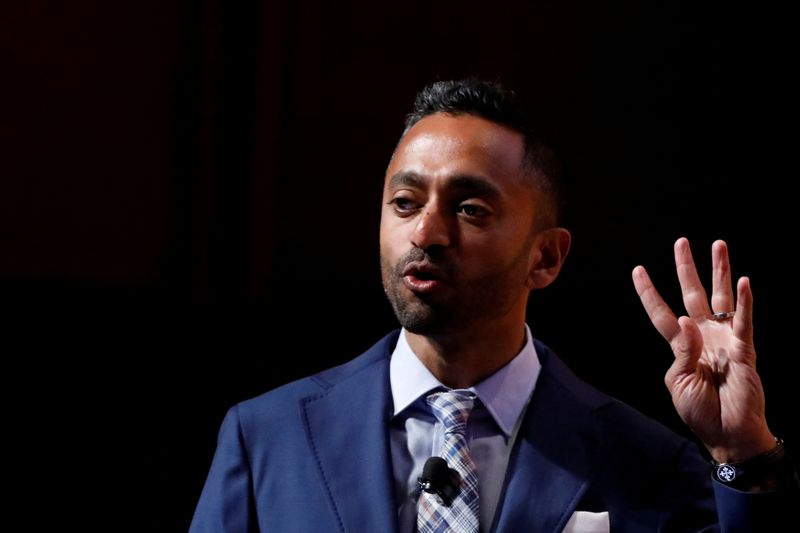(Reuters) – Shares of special-purpose acquisition companies (SPACs), for months the darling of Wall Street as they attracted unprecedented investor interest, slid again this week amid concerns that their valuations have become inflated.
The Defiance Next Gen SPAC Derived ETF, an exchange-traded fund (ETF) that tracks SPACs, was down more than 6% in morning trading on Friday and is on track for its biggest weekly drop since it launched in October.
A SPAC is a shell company that raises money in an initial public offering (IPO) to merge with a privately held company that then becomes publicly traded as a result. For the company merging with a SPAC, it is an alternative to doing an IPO itself.
SPACs gained immense popularity last year among amateur retail traders as well as Wall Street funds that are hoping to ride the coattails of prominent investors who have raised SPACs, such as hedge fund manager Bill Ackman and serial blank-check dealmaker Chamath Palihapitiya.
SPACs have increasingly focused on deals in industries of the future such as electric vehicles, self-driving cars and space exploration. They are seen as having lucrative potential but are also fraught with uncertainty.
The trigger for the recent sell-off was the announcement last month of Churchill Capital IV Corp’s long-awaited merger with electric vehicle company Lucid Motors.
The stock had run up more than 500% in anticipation of the deal, but it slumped more than 40% on the announcement as investors became more skeptical about the prospects of a company that has yet to produce cars regularly.
Since then, broader concerns over frothy valuations have spread to other popular names that have done SPAC deals, such as sports betting platform DraftKings Inc and QuantumScape, a maker of batteries for electric vehicles.
QuantumScape, which has said it does not expect to generate an operating profit until 2027, saw its market cap hit a high of almost $45 billion in December. It has since lost 72% of its market value.
In a further hit to SPACs, Palihapitiya, one of the most high-profile SPAC investors, sold his remaining personal stake in space tourism startup Virgin Galactic Holdings for around $213 million.
London Stock Exchange (LSE) Chief Executive David Schwimmer warned on Friday that the “frothy” U.S. market for SPACs could see investors coming off “poorly”. A British government review this week recommended making it easier for SPACs to list on the LSE.
While SPACs allow private companies to list more quickly than a conventional initial public offering process, critics have asked questions about a possible misalignment of incentives by SPAC promoters in some cases.
A two-year study ended January by JP Morgan Asset Management https://bit.ly/3kUZx19 showed SPAC sponsors earned returns of 958% on average, compared to an average gross return of just 90% for “buy and hold” SPAC investors.
(Reporting by Aaron Saldanha in Bengaluru and Joshua Franklin in Boston; Editing by Sriraj Kalluvila and Matthew Lewis)



















